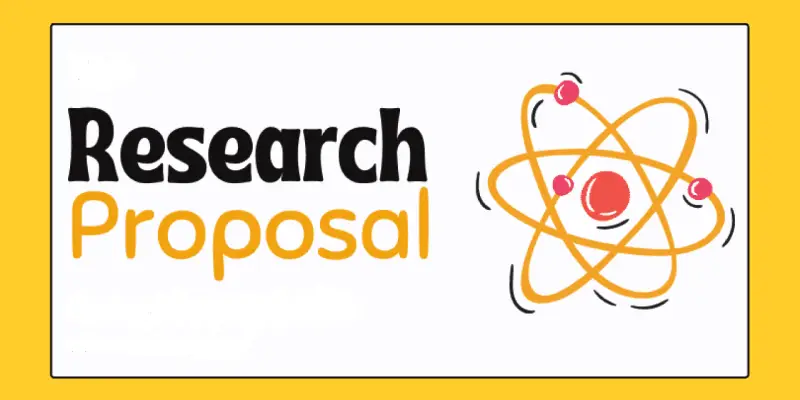Adequate preparation for a research project is vital as it doesn't only add to grades but is also essential to complete your educational certification. As a university student, your research proposal is one of the ways you prepare for your final project. This makes proposal and project writing essential skills you must learn.
Therefore, you must know the basics of this concept as it prepares you for success. This post will help you understand the research proposal, its purpose, and its typical structure. You will also learn some tips to help you craft a winning project proposal.
What Is a Research Proposal?
A research proposal is a concise and well-structured document that summarizes your plans for your research project. It answers most questions concerning your proposed study, highlighting the salient parts. Also, it helps reveal the aims of your proposed research and how to plan to achieve them, showing its feasibility.
Research Proposal Length
As earlier stated, proposals are concise and mainly summarize what your main project work will look like. A 5 to 10 pages project proposition is okay for a Bachelor's degree, but this will change when it comes to master's and PhD dissertations. Remember, it excludes the results, conclusion, and discussion, usually in the main works. Your supervisor will guide you to the right volume.
Steps on How to Write Research Proposals
Crafting a winning project proposition requires a few steps; this makes it easy whether you're new to it or not. The steps include:
Topic Selection
The first step on how to start a research proposal is determining your topic. Many factors would determine your preferred topic. Your field, passion, and society are a few common factors. The more interest you have in the topic, the more you enjoy your study.
Further, Choosing researchable topics and ones with available data is crucial. However, your coordinator or faculty may provide you with a topic to work on. Ensure it is feasible before commencing work on it.
Study Existing Work on the Topic
At this stage, you will gather many literature materials on your chosen topic and
study as much as possible. While studying, it is crucial to document your discovery. This will help with your subsequent project work.
Also, look for gaps in the existing work. Research typically aims to contribute to the body of knowledge. A proper literature review will help you discover areas where you can contribute.
Write Your Purpose Statement
This is where you explain why you plan to conduct the research work. Your purpose should be worth investing in, especially if you aim to obtain funds to sponsor your study. This should reflect your plans and why they should interest others.
Craft Your Research Question and Hypothesis
The next step in research proposal writing is penning a precise question based on your topic. Your story revolves around your topic. Similarly, formulate hypotheses to answer your research questions. Hypotheses are the predicted outcome of your study.
Write Your Introduction
You can now start writing your proposal introduction. This section includes your purpose statement, literature review with the possible contribution, study questions, and hypothesis. You document all your notes from your initial efforts at this stage.
Describe Your Methodology, Research Design, and Mode of Data Collection
You'll also need to write down your research designs with alternatives and state how to get data. Your data can be sourced primarily secondarily. Also, you'll have to explain how you will analyze this data and report the outcome.
Give Your Research Budget Estimate and Timeline
Finally, you can provide the amount you believe the proposed study will cost and how you plan to schedule your study. This will serve as a guide for your project schedule and cost.
The Structure of Research Proposal
Despite the theoretical teaching in class, you might still wonder what a proposal looks like. This section explains the structure of the proposal to you.
-
Introduction: the introduction is the first step, where you capture readers' interest in explaining the importance of your research
-
Background Study: this part shows the previous work done on your topic. It involves materials others have written on the topic. A literature review helps convince your reader why you are conducting the study and possible contributions to the knowledge body.
-
Methodology: This part states your plan for collecting data and methods of analyzing the given data. List if you're using primary or secondary data and the suitable statistical method you'll employ to examine them.
-
Citation: this is the stage where you'll reference all the owners of the material used in your proposal. There are various referencing ways that your institution determines.
Importance of Writing a Project Proposal
Whether you're writing to gain funding for your project or a learning certificate, a proposal helps in some ways. Below are some of the importance of research proposal writing.
Helps In Planning and Review
While writing your project proposition, you plan the procedure to complete your approaching project work. It also helps you spot errors and address possible problems before the main study starts.
Serves as Guide
Since it is a study summary, knowing how to write propositions correctly is essential. This will help guide your steps when you commence the main study. It also gives direction on which you can base your work.
Helps Manage Your Time and Budget
A reasonable proposition shows the timeline and estimated budget of your project. This helps manage your funds during your study. And since you have your timeline, it reduces the time wasted on every stage of your study work.
Helps Determine the Suitable Methodology
While writing your study proposition, you test many approaches, tools, and data. This helps you find the correct methodology for your work. It also enables you to make proper adjustments to suit your proposed study.
Prove the Topic's Relevance and Feasibility
One of the aims of writing a proposition is to show your readers and supervisor how relevant your study topic is to your field. It is vital to make your proposal exciting and unique. This will also help you determine if your proposed study goal is achievable.
Tips For Writing a Research Proposal
The tips below will help you write an outstanding study proposition:
Make It Concise and Focus on Key Issues
Your study proposal should be concise and ensure you aim at the vital issue in your work. Precise phrasing and key points will make your study purpose clearer.
Proofread Your Document
Proofreading your work is essential; check grammar and spelling mistakes. Your description must be correct and your study proposition error-free. You may use a proofreading application to make the job easier.
Choose a Precise Topic and Use Formal Terms
Make your topic easy to understand and use the specific terms in your field. Most institutions and fields have their unique terms. It will help you connect with the readers and meet their expectations.
Acknowledge the Authors
Plagiarism is a severe offense, and you should acknowledge the original owners of your research materials. Ensure you reference the authors of the books or journals you quoted.
Conclusion
Research proposals help set a student in the right direction while writing his final project. However, many find it challenging to write proposals regardless of their level of education.
You'll find that some of these challenges have been addressed in this article. We have shown the easy ways of writing this, the structure of a project proposition, and some of its benefits.




